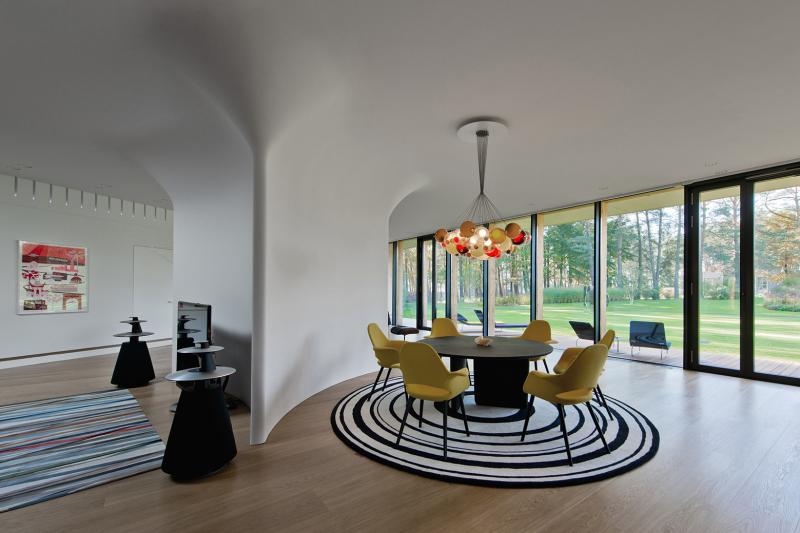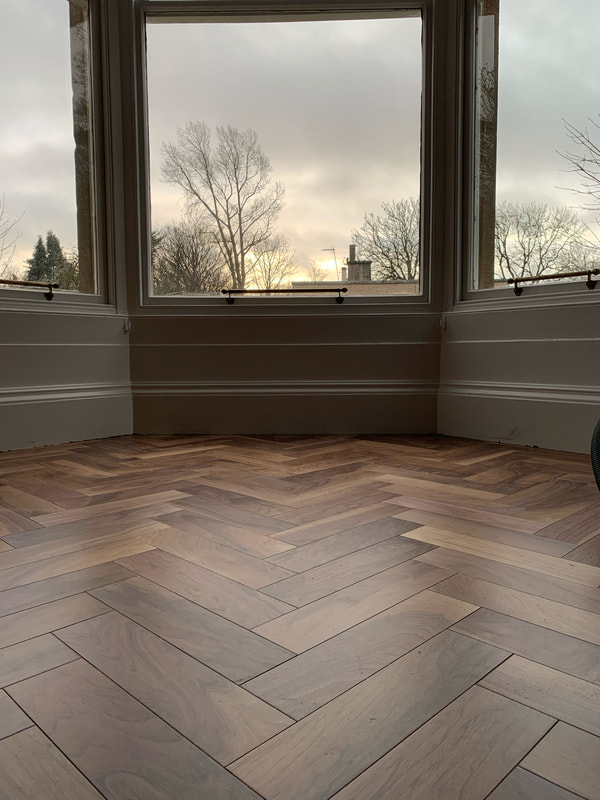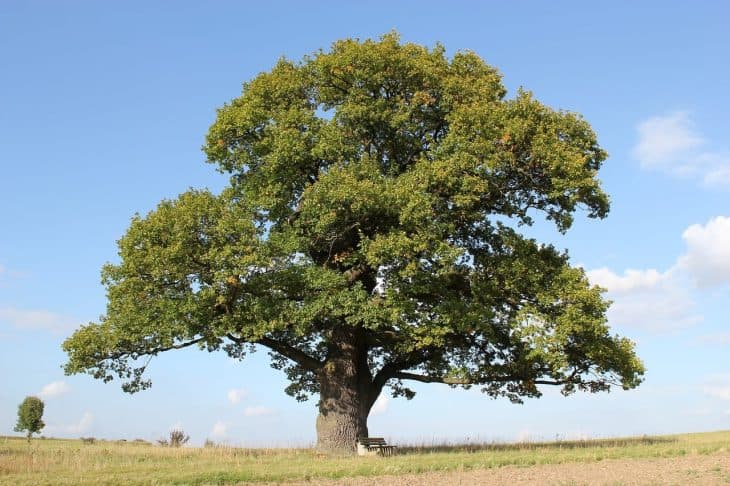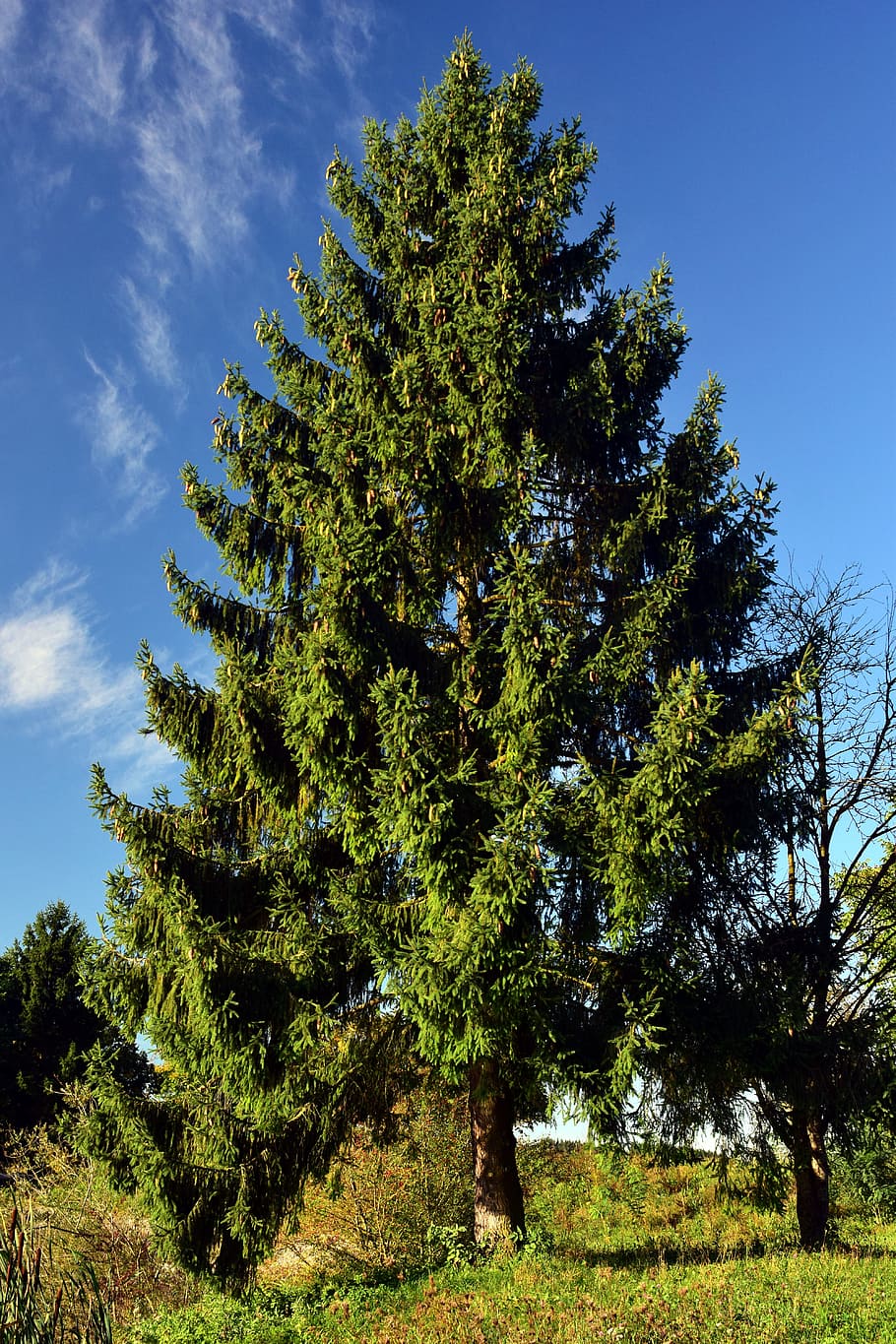Who doesn't love a beautiful hardwood floor? While we might all share enjoyment of this beautiful material, you might find yourself wondering why hardwood flooring is used underfoot, and what these two terms really mean. Of course, the most convenient answer would be that hardwood is harder, and softwood is softer! But, in reality, the truth of the matter is not so cut and dry. In fact, hardwood and softwood come from distinctly different types of trees, and offer quite different properties from each other. For this reason, when we envision even spectacular engineered oak hardwood flooring or engineered walnut hardwood flooring, we find peace of mind knowing that the entire construction is of strategically selected hardwood. To clue you in to why this matters, allow us to invite you along for a deep-dive exploration of the difference between these two types of woods, and why hardwood is our heart and soul here at Unique Bespoke Wood.
Two Different Types Of Trees
So, if hardness or softness do not define these terms, what does? The distinction between hardwood and softwood actually lies in the way that trees reproduce! Hardwood comes from trees that are known as angiosperms. These are trees that produce seeds with some kind of covering, such as the flesh of fruit, or the shell of an acorn. They are also leaf bearing, and are more-often-than-not deciduous trees, meaning that their leaves fall in the winter.
In contrast, softwood trees are gymnosperms, and produce seeds which fall uncovered to the ground. Most softwood trees are evergreen, and great examples include pine trees, which shed their seeds from cones, and conifers, which release their seeds on the wind. Fascinatingly, some hardwood trees, such as balsa, are quite soft, and some softwood trees, such as conifers, produce quite hard wood.
So, if the terms hard and soft are a little confused when we talk about wood, how do we measure the difference? In fact, the hardness of all woods is measured and rated using the Janka test. This clever method was come upon as a way to measure the usability of wood for flooring, which is undeniably very important! The Janka test measures the resistance of wood to denting and wear by assessing the force, in pounds, required to embed an 11.28mm steel ball into the wood to a depth of half of the ball’s diameter.
So, if hardness or softness do not define these terms, what does? The distinction between hardwood and softwood actually lies in the way that trees reproduce! Hardwood comes from trees that are known as angiosperms. These are trees that produce seeds with some kind of covering, such as the flesh of fruit, or the shell of an acorn. They are also leaf bearing, and are more-often-than-not deciduous trees, meaning that their leaves fall in the winter.
In contrast, softwood trees are gymnosperms, and produce seeds which fall uncovered to the ground. Most softwood trees are evergreen, and great examples include pine trees, which shed their seeds from cones, and conifers, which release their seeds on the wind. Fascinatingly, some hardwood trees, such as balsa, are quite soft, and some softwood trees, such as conifers, produce quite hard wood.
So, if the terms hard and soft are a little confused when we talk about wood, how do we measure the difference? In fact, the hardness of all woods is measured and rated using the Janka test. This clever method was come upon as a way to measure the usability of wood for flooring, which is undeniably very important! The Janka test measures the resistance of wood to denting and wear by assessing the force, in pounds, required to embed an 11.28mm steel ball into the wood to a depth of half of the ball’s diameter.
Two Different Realms Of Possibility
Of course, all wood is naturally beautiful. However, hardwood and softwood are not created equally. Hardwood contains far more fibres, and tends to grow much more slowly. This can result in the spectacularly beautiful grain patterns, knots and burls that we all enjoy so much as organic decoration within our homes and interiors. What's more, the dense and fibrous structure of hardwood lends fantastically to purposes that will require utmost strength and resilience.
That divine engineered ash hardwood flooring that you have been dreaming of will be ideal for remaining at its best with continuous footfall. Equally, that richly hued and pattered engineered walnut hardwood flooring will radiate elegance, no matter how much traffic it sees! Hardwood is absolutely wonderful for providing the longevity that we aspire to when we install a breathtaking floor, for a truly special interior. The resilient nature of hardwood makes it a good choice for exterior woodwork, such as decking. Because of the unique beauty provided by many hardwoods, they are also popular for bespoke joinery and fine veneers. As an added bonus, they are also far more fire resistant than softwood.
In contrast, softwoods play a different role within our homes. Softwood accounts for around 80% of the timber used around the world, thanks to its versatility. Because of hardwood's dense, fibrous nature, its resilience comes at the cost of easy workability. This often makes softwood a preferred choice for projects such as furniture making, ceilings, floors and windows. Because softwood trees grow faster, softwood is also usually cheaper, making it an attractive choice for construction and building elements. However, lower longevity and poorer fire resistance are the costs that come within such an equation.
Creating Your Dream Floor
When we create the exquisite engineered wood flooring – or indeed solid wood flooring – that you envision for your anticipated space, we know that the oak, ash, or walnut that you might choose will provide an aesthetic that you will enjoy for many years to come. We know that the birch wood layered within our engineered flooring will provide unparalleled durability against changes in temperature and humidity. At the same time, as you will discover, there is immense joy to be found in the knowledge that each hardwood floor created is like a fingerprint!
Each type of hardwood provides a different grain presentation, while no two trees produce an identical pattern. With the addition of different finishes, a vast array of colours and contrasts can be achieved. In this, hardwood ticks every box when it comes to manifesting both striking and inviting interiors that are built to last. So, are you ready to explore engineered oak hardwood flooring, or any one of the many other options available here at Unique Bespoke Wood? If so, contact our team today!
Of course, all wood is naturally beautiful. However, hardwood and softwood are not created equally. Hardwood contains far more fibres, and tends to grow much more slowly. This can result in the spectacularly beautiful grain patterns, knots and burls that we all enjoy so much as organic decoration within our homes and interiors. What's more, the dense and fibrous structure of hardwood lends fantastically to purposes that will require utmost strength and resilience.
That divine engineered ash hardwood flooring that you have been dreaming of will be ideal for remaining at its best with continuous footfall. Equally, that richly hued and pattered engineered walnut hardwood flooring will radiate elegance, no matter how much traffic it sees! Hardwood is absolutely wonderful for providing the longevity that we aspire to when we install a breathtaking floor, for a truly special interior. The resilient nature of hardwood makes it a good choice for exterior woodwork, such as decking. Because of the unique beauty provided by many hardwoods, they are also popular for bespoke joinery and fine veneers. As an added bonus, they are also far more fire resistant than softwood.
In contrast, softwoods play a different role within our homes. Softwood accounts for around 80% of the timber used around the world, thanks to its versatility. Because of hardwood's dense, fibrous nature, its resilience comes at the cost of easy workability. This often makes softwood a preferred choice for projects such as furniture making, ceilings, floors and windows. Because softwood trees grow faster, softwood is also usually cheaper, making it an attractive choice for construction and building elements. However, lower longevity and poorer fire resistance are the costs that come within such an equation.
Creating Your Dream Floor
When we create the exquisite engineered wood flooring – or indeed solid wood flooring – that you envision for your anticipated space, we know that the oak, ash, or walnut that you might choose will provide an aesthetic that you will enjoy for many years to come. We know that the birch wood layered within our engineered flooring will provide unparalleled durability against changes in temperature and humidity. At the same time, as you will discover, there is immense joy to be found in the knowledge that each hardwood floor created is like a fingerprint!
Each type of hardwood provides a different grain presentation, while no two trees produce an identical pattern. With the addition of different finishes, a vast array of colours and contrasts can be achieved. In this, hardwood ticks every box when it comes to manifesting both striking and inviting interiors that are built to last. So, are you ready to explore engineered oak hardwood flooring, or any one of the many other options available here at Unique Bespoke Wood? If so, contact our team today!






















